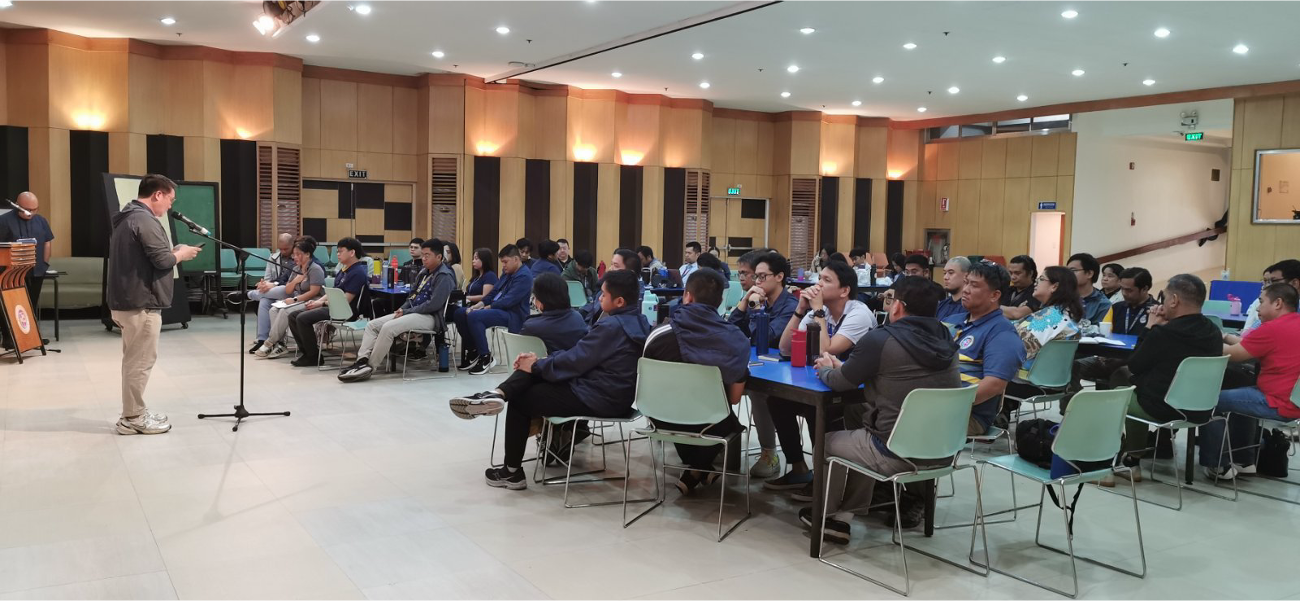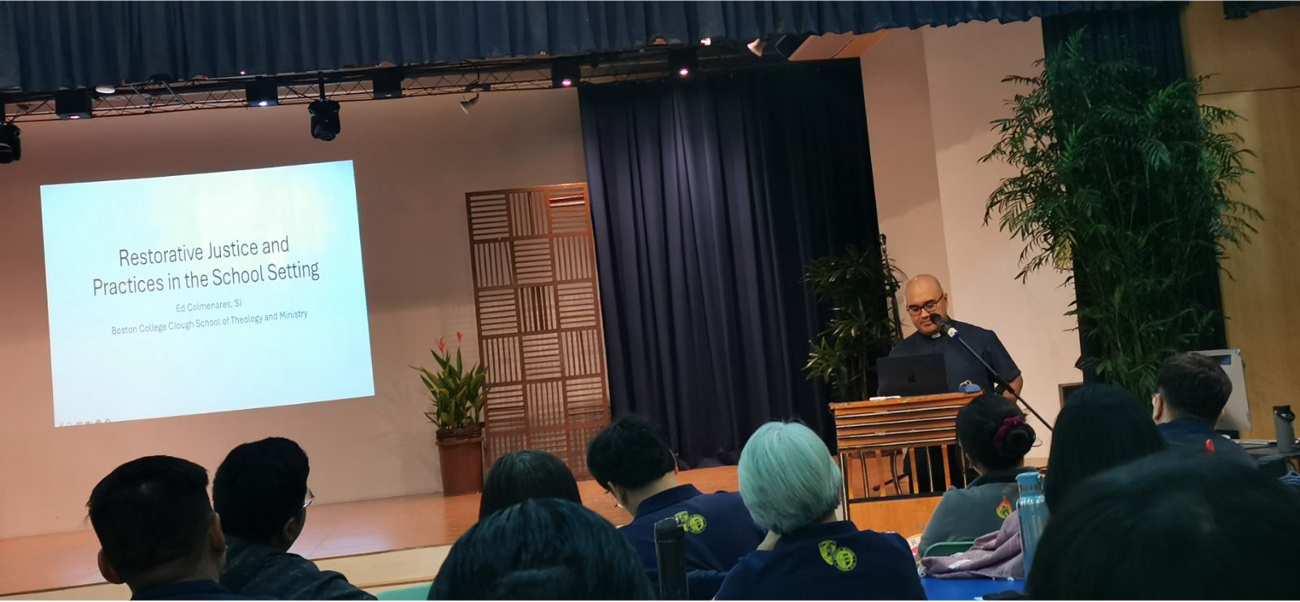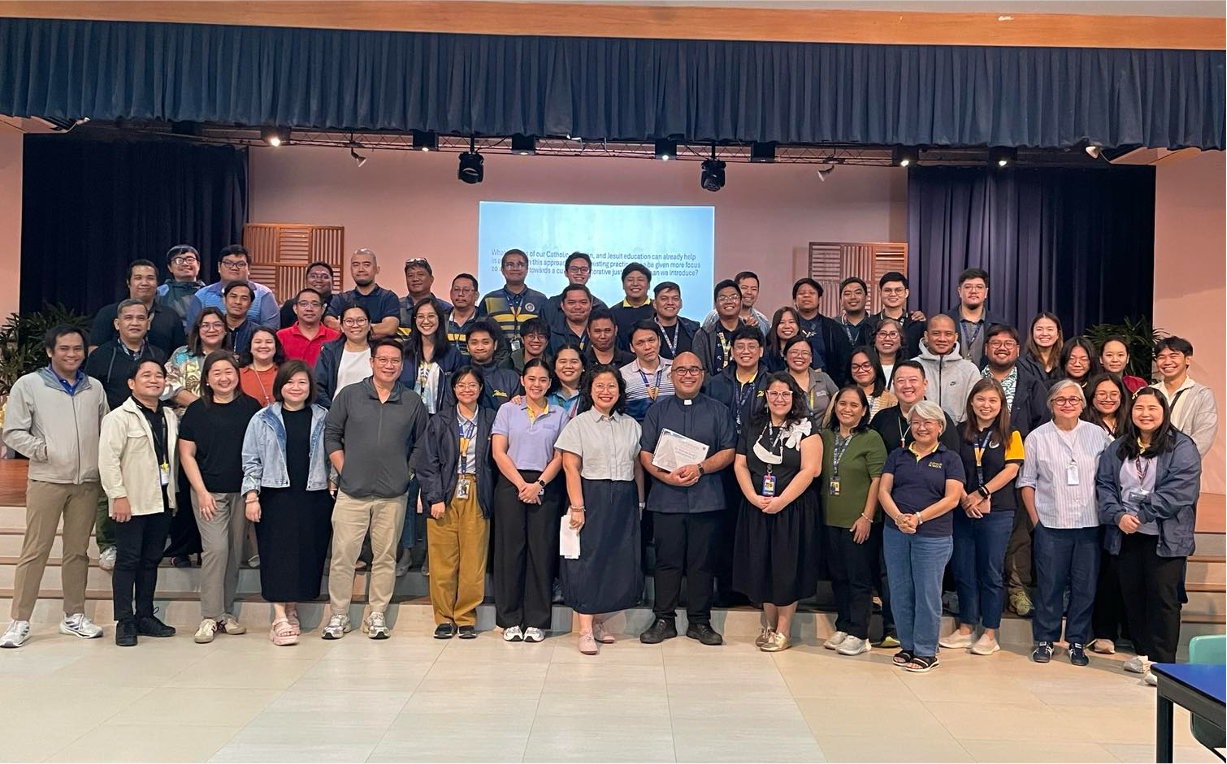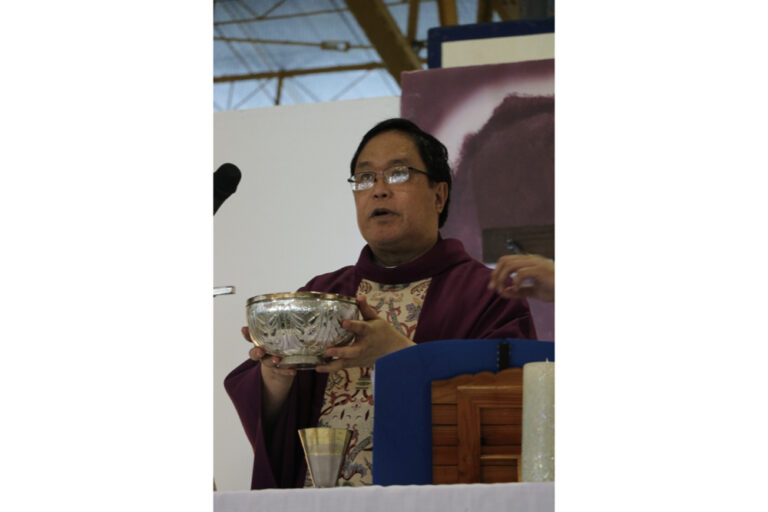I perfectly recall a particular instance back in grade school when, during homeroom, my teacher checked if we had trimmed our fingernails. I had forgotten to do mine. She told me to put my fingers together, and she hit them with a stick. She did not do it with full force, but it was painful nonetheless. I will forever remember that experience. I am grateful that punishments of this kind do not exist in most classrooms nowadays.
The workshop on restorative justice and practices in school settings facilitated by Fr. Edryan Paul J. Colmenares, SJ, on August 13, 2025, for the Formation offices of Xavier School shed light on this matter. It was an opportune time to look again at our disciplinary practices through the lens of Catholic, Ignatian, and Jesuit spirituality and to see if our practices are still faithful to the aim of Jesuit education, which is the formation of the entire person.

The session was both informative and evocative. Among the many things that spoke to me was the emphasis on injustice as damage to one’s relationships—with another person, with the community, and with God. It reminds me of how the Catechism and Pope Francis in Laudato Si’ defined sin as a rupture in harmonious relationships: between humans, between humans and creation, and between humans and God. Restorative justice is the healing of these broken relationships. It teaches us to focus on repairing the harm done by the offense rather than just punishing the offender. It encourages us to consider both the action and the person, along with their context, background, and behavior. This allows for a more fitting response and action to an offense, one that also includes compassion and cura personalis, the Ignatian virtue of caring for the entire person. How wonderful that as we take care of and attend to the needs and healing of the victim, we also look after the welfare and rehabilitation of the offender, for they too have dignity that must be respected! As Scripture says, the Father makes the sun rise on both the good and the bad and the rain fall on those who do right and those who do wrong.
Another grace I am grateful for in the workshop is the reminder that every person is innately good. God created men and women, and God declared them very good, while the rest of creation God declared good. Even our Ignatian tradition tells us to consider that whatever a person says—and perhaps does—comes from a place of goodness (Ignatian Presupposition). Sin and offense disfigure this goodness in us. Restorative justice and practices aim to reclaim that which is lost through different interventions. In our school setting, unconditional positive regard coupled with Ignatian presupposition makes us champions of restorative practices and makes our learning spaces havens where authentic formation of the entire person happens. This might be challenging for us and, more specifically, for the victim. Our constant prayer is to find God in every person, even when the good is not apparent or easily noticeable.
Finally, and perhaps my most important takeaway, is that promoting restorative justice and practices requires a whole-school approach. Structures in place should support our desire to implement a discipline philosophy that addresses problematic actions but also takes care of the person. Institutions such as the school and family should work together hand in hand to ensure that whatever is taught in school is reinforced at home. School rules, policies, and processes must always be reviewed and updated. Students should learn how to empathize and communicate properly. Administrators, teachers, and formators need to constantly revisit their teaching-learning philosophy. Parents should keep an open line of communication with their child’s teachers and formators. Indeed, cliché as it may sound, it takes a village to raise a child.
I am grateful to be part of an institution that does not just settle on traditional ways of proceeding but is bold enough to explore new and better ways to form our students. At the same time, we are invited to examine ourselves and our personal beliefs so that we can align our hearts and minds with one another and with the school. I am grateful that corporal punishment is no longer practiced in most educational settings. I hope that with this, we truly form persons fully alive, endowed with the passion for justice.








